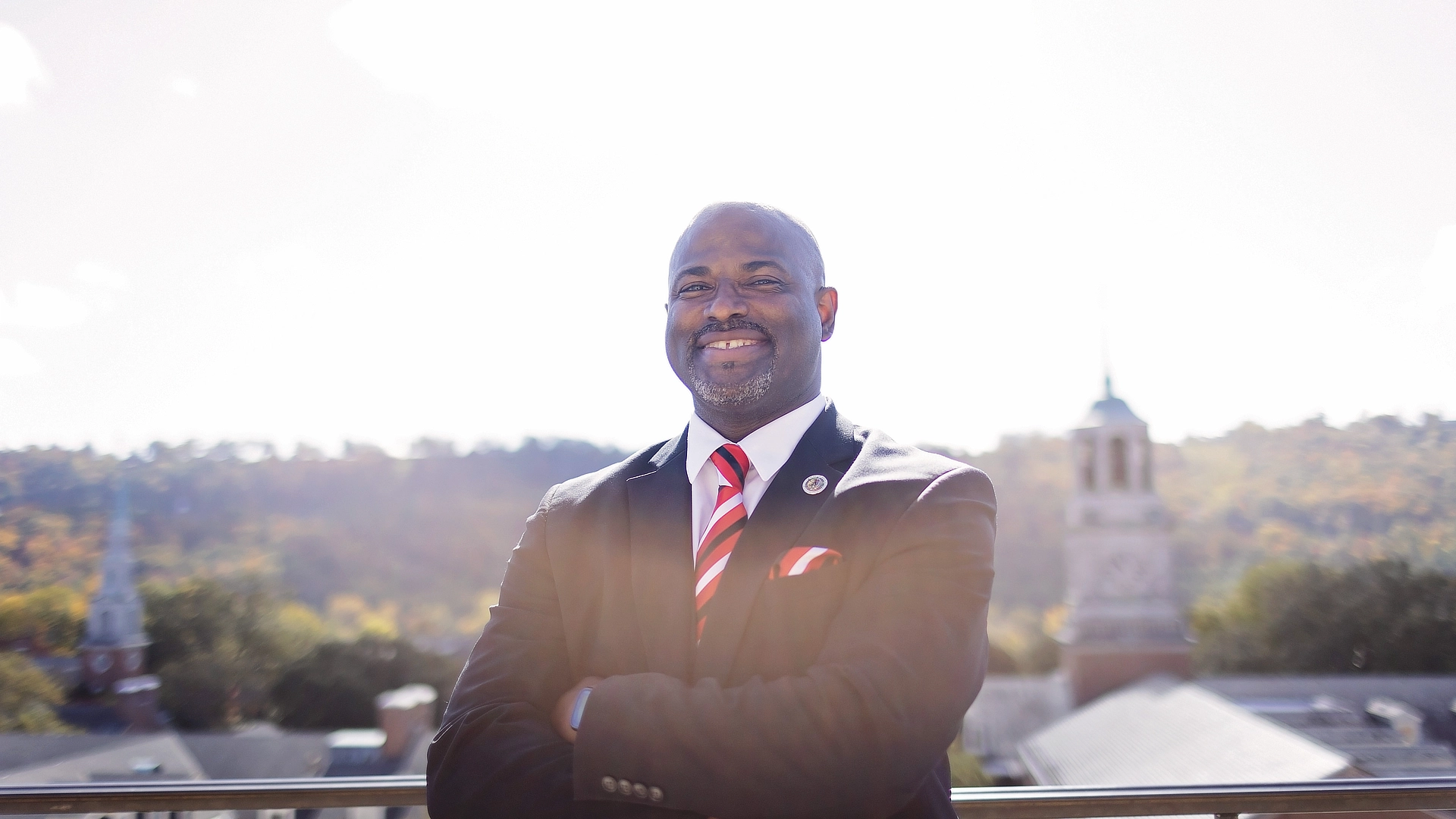In the bustling landscape of urban middle schools, where challenges often outweigh resources, the pursuit of academic success can be a daunting journey for many high-risk students.
William Heard ‘22, a graduate of Orlean Beeson School of Education’s doctoral program, has delved into the intricacies of this struggle, shedding light on individual protective factors that foster academic resilience among middle school students in urban settings.
“The primary motivation for me to research academic resilience and the well-being of high-risk students is that I was that student growing up,” said Heard. “I was the youngest of nine children, I lost both of my parents at an early age was raised by my grandmother until her passing when I was in the ninth grade. Despite a history of exposure to adversity, I maintained good grades and became the first in my family to earn a college degree with the help of God, family, friends and numerous educational and community leaders.”
Inspired by his own experiences, Heard's innovative research carves a niche by focusing on the often-overlooked individual protective factors that play a crucial role in promoting academic success, especially among high-risk students in urban middle schools.
Heard’s study employs a qualitative interpretive description approach, aiming to capture the nuanced experiences and perceptions of 20 eligible students in grades 7-8. By triangulating semi-structured interviews with document analyses of attendance and grades, Heard found a compelling narrative of resilience emerging from the voices of these students.
Despite facing adversity, all 20 students exhibited an increase in attendance, core subject grades, and cumulative GPA over the previous year. The key to this upward trajectory, as articulated by the students themselves, lies in four central themes: positive self-esteem, self-determination, perseverance, and optimism.
Positive self-esteem emerged as a cornerstone for academic resilience. The students perceived themselves as possessing confidence in maintaining good grades, a factor that significantly contributed to their success. Self-determination and motivation played a pivotal role, driving these students to succeed as they envisioned their future goals. The ability to persevere in the face of adversity and maintain an optimistic outlook about achieving future aspirations were additional factors underpinning their academic resilience.
These findings offer a rare glimpse into the minds of high-risk, urban middle school students, emphasizing the importance of understanding their subjective experiences to develop effective interventions and support systems.
Heard's research highlights the crucial role of parent-school partnerships in nurturing academic resilience among high-risk students. Parents and caregivers, according to the students, played a significant role in their success by providing unwavering support, actively participating in school-related activities, and offering words of encouragement during challenging times.
“For schools and parents seeking to foster effective partnerships, joining parent-teacher associations and volunteering during school events are practical steps,” said Heard.
By encouraging parents to become active participants in their children's education, schools can strengthen the support network that is vital for academic resilience and directly impact the four themes that emerged in Heard’s research.
However, the implications of Heard’s findings extend beyond individual students and parents. Educational leaders, administrators, school counselors, and teachers in urban settings can leverage these findings to better understand and address the unique needs of high-risk students.
To support educational leaders, the study recommends professional development that focuses on working with high-risk adolescents. This includes insights into modifying or creating school practices tailored to the needs of these students. School counselors, who play a crucial role in addressing students' mental health needs, can benefit from a deeper understanding of the challenges faced by high-risk students.
For teachers, Heard’s research suggests a need for adaptive teaching practices and strategies that align with the specific needs of high-risk students. By tailoring education to meet the unique challenges of this demographic, teachers can contribute significantly to academic success.
Perhaps one of the most profound recommendations stemming from Heard's research is the call for active listening to the voices of high-risk students. The study suggests that educational leaders should create opportunities for these students to express their perceptions and experiences openly.
By actively seeking input from high-risk students, educators can gain valuable insights into the factors that hinder or promote academic success. This call to action aligns with the broader educational research community's emphasis on amplifying student voices for more effective and targeted interventions.
Heard's research not only illuminates the individual protective factors that underpin academic resilience among high-risk, urban middle school students but also offers a roadmap for educators, parents, and policymakers to create a supportive environment. By recognizing the power of positive self-esteem, self-determination, perseverance, and optimism, and by fostering robust parent-school partnerships, stakeholders can collectively contribute to unlocking the academic potential of students facing adversity.
As Orlean Beeson School of Education continues to navigate the complex landscape of education, Heard's work serves as a beacon, reminding us that every student's journey is unique, and understanding their perspectives is key to unlocking lasting academic resilience in challenging settings.

